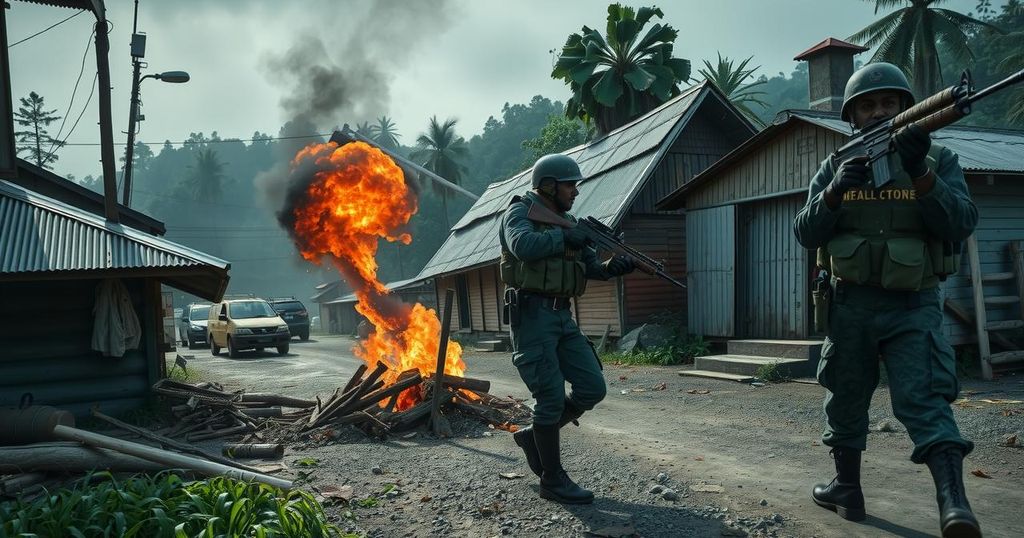Eastern Congo has witnessed the recapture of several towns by government forces from armed groups, as fighting continues in the region. The conflict, which has displaced over seven million people, includes the ongoing challenge of ensuring safety and humanitarian aid for affected populations.
Government forces in eastern Congo have successfully recaptured several towns that were previously under the control of armed groups, as confirmed by a spokesman for the Congolese army. However, intense fighting continues in the region, which has been plagued by conflict for decades due to the presence of over 100 armed groups vying for territorial control in the mineral-rich provinces of North Kivu and South Kivu. Despite these military successes, the humanitarian crisis in the region remains dire, with millions displaced and ongoing security challenges.
Recently reclaimed towns include Ngungu, a strategic location near Goma, as well as Lumbishi, Ruzirantaka, Kamatale, Bitagata, and Kabingo. Nevertheless, some areas, such as the Masisi Center, remain under rebel influence, creating concerns among returning residents who fear for their safety. “We are in Ngungu … but we continue to suffer because the security is not well established,” expressed local resident Nsabimana Alexis. Frequent clashes limit access for aid, exacerbating the situation. The M23 rebel group, reportedly backed by Rwanda, continues to be the main insurgent force in the region, further complicating efforts for peace.
The repercussions of this ongoing conflict are profound, as more than seven million individuals have been displaced, with aid organizations like Doctors Without Borders stating that facilities are overwhelmed with the influx of refugees seeking safety. “We are doing our best to respond to this situation. But the severe lack of humanitarian responders in the area is making things difficult,” commented Romain Briey, an MSF coordinator. The situation in eastern Congo illustrates the complexity of armed conflict and humanitarian efforts amid persistent violence.
The eastern region of the Democratic Republic of Congo has been embroiled in conflict for decades, primarily due to the proliferation of numerous armed groups seeking control of land and resources in this mineral-rich area. Proximate issues include the historical and political tensions with neighboring countries, particularly Rwanda, which is alleged to support certain rebel factions. The humanitarian implications are severe, with millions displaced and ongoing crises in healthcare and aid access.
In conclusion, while the Congolese army has made significant strides in reclaiming towns from armed groups, the ongoing fighting and humanitarian difficulties illustrate the complexity of the issues in eastern Congo. The M23 rebellion, coupled with the lack of adequate humanitarian assistance, continues to jeopardize the safety and well-being of residents in the region. Continued efforts and international support are crucial to stabilizing this war-torn area.
Original Source: apnews.com






